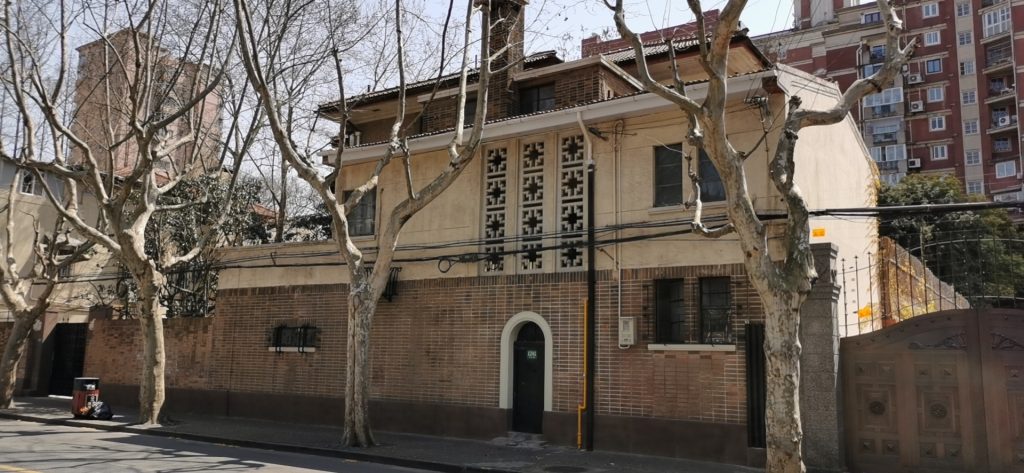There used to be the golden era for foreigners to invest in China property market. Yes, that was before July 11, 2006 when China central government issued the regulation entitled “Notice on Regulation on Access and Administration of Foreign Capital into China Real Estate Market” (the “Decree 171“).
Let us revisit how the law has evolved in respect of purchase and sale by foreign owners (individual and corporate) since then.
I. Decree 171: Start of Restrictions on Foreign Direct Purchase of China Properties
In this Decree 171, in order to invest or purchase properties in China, esp in first-tiered cities like Beijing, Shanghai, Shenzhen or Guangzhou:
(1) Foreign companies shall have to set up China local subsidiary entities in order to develop, construct and sell new properties;
(2) Foreign companies that wish to buy properties in China shall need to make the case that the properties are necessary for their business needs. In other words, non-real estate foreign invested companies are not allowed to invest or speculate in real estate market.
(3) foreign individuals are not allowed to freely purchase properties in China, and are restricted to buy only one property for self-use purpose provided the foreign buyers have been worked or studied in China for up to one year.
(4) besides the aforesaid curbing measures, the most effective way of cooling off foreign capital zeal in China real estate property market is to filter the inflow of foreign hot money. Only foreign exchanges that meet the requirement may be wired and converted into RMB (Chinese official currency) in China.
On the other hand, the Decree 171 included a sentence to the effect that sale proceeds out of “relevant properties” that are reviewed to be in compliance with regulations may be allowed to purchase foreign exchanges and transfer the same out of China. In the context of the sentence, the “relevant properties” can only be interpreted to be those properties purchased by foreign entities or individuals in compliance with the Decree.
Even since the implementation of Decree 171, it has remained largely the same in terms of restrictions on foreign owners purchasing properties in China (both real and commercial properties).
II. Foreign Owners Selling Properties in China
With Decree 171,the massive inflow of foreign hot money into China property market has suddenly braked hard to a halt. On the other hand, we have seen more and more foreign owners start selling their China properties, many believe that China property market has reached the peak point and may turn downward soon. Unfortunately, this has proved to be wrong till now.
(1) Side Effects of Decree 171
Before Decree 171, many foreign corporate entities and individuals have already purchased properties in China. In particular foreign corporate owners of China properties have found themselves in a very difficult situation: there is no normal way to sell their properties and take the sale proceeds out of China.
You see, Decree 171 has mainly focused on fending off foreign speculative investment in China property market and shed no light on how foreign corporate owners that have bought China properties therebefore can sell such China properties.
In practice, it is almost impossible for foreign companies to sell their China properties because they cannot open an RMB (Chinese legal currency, RenMinBi) account with any China bank to receive sale proceeds within China.
In the past, we used to know one bank in China that offers a solution to such foreign corporate property owners to entrust a foreigner to receive such sale proceeds and then purchase foreign exchanges and remit the same out of China. But later last year (2021), they have stopped that practice closing the only channel that could have been used by foreign property owners to sell China properties. So far there seems no way for foreign company owners to sell their China properties.
(2) Foreign Individual Owners Selling Properties in China
I remembered some 15 years ago, when I helped my first client in selling her property in China, it has been very onerous process of visiting the foreign exchange authorities quite a number of times despite that I had been familiar with foreign exchange law before that. Things have evolved in the regulation: loosened in some aspects, and tightened in other aspects.
For example, foreign exchange authority has relegated to commercial banks its power to approve application for converting RMB sale proceeds into foreign exchanges, making the process simpler. On the other hand, China government is still very sensitive about outflow of capital, and has made it stricter for foreigners take money out of China.
(i) How Did the Foreign Owner Acquire the China Property
In the past, from our experience, seldom would the bank ask how the foreign owners come to own the China properties they sold. In other words, so long as a foreigner name is on the title deed of the property, he has the right to sell it and send the sale proceeds out of China. But recent years, some banks started asking how the foreign owners come to acquire the China properties.
There are several ways foreign individuals can acquire China properties:
(a) normal purchase of China properties either before or after Decree 171; it doesn’t matter whether the foreign owner uses RMB fund or foreign exchanges to finance such purchases.
(b) as a result of inheritance or gift from prior China owners. In this regard, please note that some first-tiered cities in China like Beijing, Shenzhen and Guangzhou, foreigners are not allowed to receive gift of China properties if they are not qualified for purchasing China property as prescribed under Decree 171.
(c) acquire title by way of community property rules under China matrimonial property regime. As frequently mentioned in other posts on this blog, in China, as the default matrimonial property regime, any asset acquired after marriage is presumed to be the community property of both spouses. Now if a foreigner married to a Chinese spouse is not qualified to purchase property in China, he or she may still be able to acquire title by applying to real estate registration authority in China to add the foreign spouses’ name onto the title deed that is previously registered in the name of his or her Chinese spouse.
(ii) Potential Problem of Repatriating Sale Proceeds out of China
Depending on how the foreign owner come to acquire the title of China properties, the process and procedures for repatriating the sale proceeds out of China are different if not impossible.
As mentioned above, it is now the bank’s duty and power to apply foreign exchange regulations to decide whether repatriation of sale proceeds from China properties should be given green light. In practice, banks may have different understanding and interpretation of those foreign exchange regulations. So when considering sending your sale proceeds out of China, which bank you are working with can be critical.
Generally, there won’t be any problem for money repatriation if the foreign owners have acquired China properties by way of normal purchases.
In the case that foreign owners sell their inherited properties in China, there is a set of specific rules when they repatriate their property sale proceeds out of China.
Confusion abounds in the case where foreigners come to acquire China property title by taking advantage of China community property rules.
When being asked to give expert legal opinion on moving sale proceeds out of China to a foreign court, I made inquiries to foreign exchange authorities and different banks. But the answers are widely different.
China foreign exchange authority thought such a foreigner owner shall not be allowed to send sale proceeds out of China. Their reason is that the practice of adding a foreign spouse name onto an existing title deed is equivalent to a gift from Chinese citizen to a foreigner, and according to current laws and regulations, gifts to foreigners are still considered as capital account foreign exchanges, thus without clear approval from foreign exchange authority, such sale proceeds shall not be sent out of China.
But our inquiry to commercial banks elicited different answers with some banks saying yes and others saying no. You see, the choice of your banking service providers may make a significant difference in your efforts to move money out of China.
Despite such confusion, we believe it is worth a try to argue that a foreign owner acquired by way of adding his or her name onto his or her Chinese spouse’s property should be allowed to send the money out of China.
III. Deal with Banks in China
As you can see, much of the work for repatriating money of property sale proceeds out of China is to be done with banks in China. From our more than a decade of experience, we have found out that due to different internal risk control policies, banks vary a lot in their dealings of foreign exchange deals. For example, foreign-invested banks are more flexible than most domestic banks in China. Small banks may be more willing to help with difficult tasks big banks are wary of.
It often takes real perseverance and resolution to argue with banks to get things done, as we all understand that banks are the most regulated financial institutions, they don’t want to break any laws. Sometimes, we have to go beyond the banks to foreign exchange authority in China to get clear understanding about certain rules.






Comments